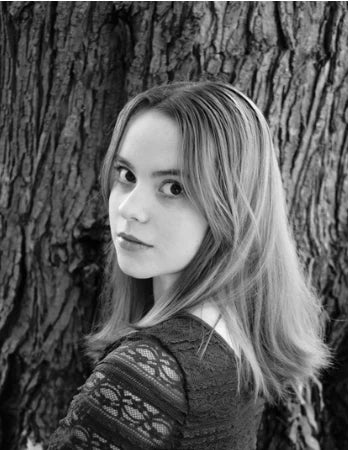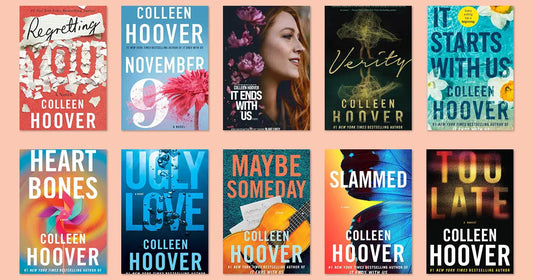
The Art of Vulnerability: Daniella Levick on Embracing Fragility, Interviewed by Lucy Matthews
To gain a full understanding of Daniella Levick’s interpretation of fragility, the three of her poems need to be deconstructed and understood. These are poems that confront grief, a never-ending feeling of panic, and acceptance of some of life's most challenging elements, to name a few. Daniella is wise beyond her years, after reading her poems many would believe that Ella had lived multiple lifetimes and was giving back by imparting her wisdom onto us about what she had learnt from those experiences. An avid poetic force, Daniella is inspired by the confessional poets of Sylvia Plath and Anne Sexton, and has turned life’s challenges into beautiful prose, with one of her most poetic endeavours resulting in a description of a panic attack as a feeling that evokes ‘butterflies having knives’. This is a simple demonstration of Daniella’s ability to tap into raw human emotions and face them head on through words that evoke. Reading Daniella’s poems can feel like you are taking a peek into her personal poetic diary, but this in itself shows the weight of emotional expression covered throughout her writing. This is something that was taken into account in the aforementioned poem ‘Butterflies with Knives’.
D. The back and forth you have during a panic attack is so chaotic. You find yourself mentally going back and forth. I wanted the ending to show this, and show that amongst it all I am still here and the clouds have now parted. I also wanted to play with the idea that we have always had anxiety, and it is something that is passed down. To showcase the longevity of it I wanted to use the strength of nature, and where I see strength across nature. This takes me out of the experience, and it is easy to write about looking back. It was certainly about a conversation I had with myself about the panic of youth and losing that youth. I wanted the end to channel an ‘I am still standing’ ethos’. The butterflies in this poem have knives because it’s violent. Anxiety isn’t some sugar coated feeling that can be brushed away with butterflies, it has a lot more violent depth to it. When the clouds clear you can firmly say to yourself, I am still here. I think fragility is definitely within us but there are degrees to fragility. I don’t think I will ever lose my fragility but the fragility of an anxiety attack is something you can overcome, especially as you grow older and get to know yourself better emotionally.
L. Daniella’s comments on fragility drew my attention to the concept of a controlled fragility. When it comes to getting older, being out of control is a common feeling. It can feel like our age is in control of us, and the violent side of fragility expressed through a panic attack can be triggered by feeling like our age is in control of us, something which Daniella alludes to. It demonstrates a multi- layered relationship with fragility which expands as we get older. Each of Daniella’s poems bring you one step closer to uncovering this relationship, and it seems someone who expresses feeling so out of control when it comes to their emotions is also in possession of a real foresight surrounding the human condition, most notably our relationship with grief. This was expressed through the eye-opening ‘The grief you know’.
D. This poem shows the residual stigma around grief, and I wanted to show that it is so natural and all around us, and half of the time we don’t even acknowledge this. It was all about grounding the grief through the lens of the world around us. It definitely ended up being a culmination of my own personal experiences with grief. Funnily enough I see a lot of dead deer on the highway, and this image just stuck with me when it came to poetic inspiration. The most prolific grief we know is loss, and it is a combination of my own lived experiences of grief and what my friends have experienced.
L. This poem was so visceral, it almost felt invasive. Do you think that this feeling of intrusion which may greet people when reading comes from a place of humans being conditioned to tip toe around grief, which when confronted, can bring us to the most fragile aspects of ourselves?
D. I wanted readers to feel uncomfortable as that is how grief is. When read through, you are inserting yourself within the discourse in a way you wouldn’t in day to day life. If anyone is experiencing grief I also wanted to help them validate such, and if not, guide them towards understanding that grief is all around and is entirely personal to everyone.
L. This poem almost reads like a love letter to grief, and adds to this pot of fragile emotion which as humans we constantly try to dodge. Grief cannot really be defined entirely, but only really controlled, again alluding to this controlled fragility. Grief can feel like a narrator of our lives, and an influential one at that. The importance of poetry is bringing us closer to an understanding of such, and I think this poem really cuts deep into this and forces readers to look.
D. I wanted to expose the avenues of grief, and it can be a small bump or a landslide. I wanted to comment on how you cannot control grief, but only let go of it. The final stanza shocked me as the poem started out very pessimistic and then the hopeful turn at the end mirrors ‘in a panic attack the butterflies’.
L. Your in-tune relationship with fragility should act like a comfort blanket when it comes down to guiding you through heavy emotions. Do you think this close relationship you have with your writing helps you navigate them so more, especially when it comes down to getting your feelings surrounding fragility, loss whatever it is, down on a page?
D. It certainly is comforting to make something whole out of something like fragility which can feel very segmented. It’s rewarding and powerful to have a beginning middle end over something like fragility. Writing helps me beyond all measure, and it can be frustrating when I cannot put pen to paper or describe how I am feeling a certain way.
L. Writing certainly can foster a deeper relationship with these huge feelings. I can tell that in the last verse you were just in this flow state of grappling with fragility. The poem is also telling us to acknowledge our grief but the acknowledgment is within that. This is something which I thought really resonated with ‘Dear World, I tried to love you’. Your final poem was the finale of the trilogy of life’s events which you have taken us through across your poems so far, - a response to all the heavy baggage many carry across their lives. Was this the same perception you had when going into writing this final poem?
D. Absolutely. I think this poem is the most general and very broad of them all. It confronts fragility in the face whole. I do not think I wrote it as a frustrated letter to the world. As humans we are born fragile, and in the context of this poem, fragility was taken advantage of. In this poem I do not accurately represent the capacity for fragility to still be beautiful even though that is still there. I don’t want to misrepresent fragility.
L. I would be intrigued to know what a dear world I love you poem would look like. You have attempted to do justice to fragility and compromise in a way. The last line encompasses the power of the world’s challenges. It is ironic. Did you want to purposefully contrast this poem with your questioning of fragility?
D. I definitely wanted this poem to be very broad and use the world as a subject instead of an abstract being. I think what I want it to mean now is different to what I want now when I wrote it. I think the ending is highly charged, and because it is born out of frustration it is an amalgamation of fragility, frustration, a little bit of grief for a life where the world doesn’t take advantage of this fragility. I think I was grieving the loss of acceptance of fragility. This is a letter to the world which is saying that I have accepted everything but why did I have to go through everything to accept such? It’s a curiosity birthed from acceptance, but that doesn’t mean it isn’t painful at the same time.
L. That is the beauty of writing- it can tell us we have grown through the re- reading of a poem like this. You demonstrate a willing at the end of this poem, whereas in the others you have attempted to intellectualise your pain. It seems you are just letting it all go in this one.
D. I live a lot in the past, and letting go is something which I really try and advocate for in my poems but actually doing it is a whole different thing. Anxiety, the panic of growing older and the idea of home are very consistent themes across my poetry. I have always had a very accessible and broad range of poetry reflective of these themes at my fingertips- growing up there were tonnes of poetry books in my house. I never grew up with this idea of only certain poetry being acceptable like Shakespeare for example, and I think that really has shaped my writing today and my relationship with poetry.
All of Daniella’s poems read like a trilogy, a realisation which came to myself after reading each poem. They are a trilogy that focuses on the impact of life’s events and our response to such. There are speckles of positivity, acceptance and longing across these poems cloaked amongst the intensity of sombre feeling which greets you at first read. Daniella’s interpretations of these events is multi-layered, and her ability to face these events head-on is admirable, doing the work for us when it comes to addressing the aspects of life which many will try and dodge throughout their entire life. Daniella tells me she is currently enrolled in a poetry class, meaning that she will continue to be a talented writing force in a world that finds it tricky to face the topics Daniella sharpens her pen with.



